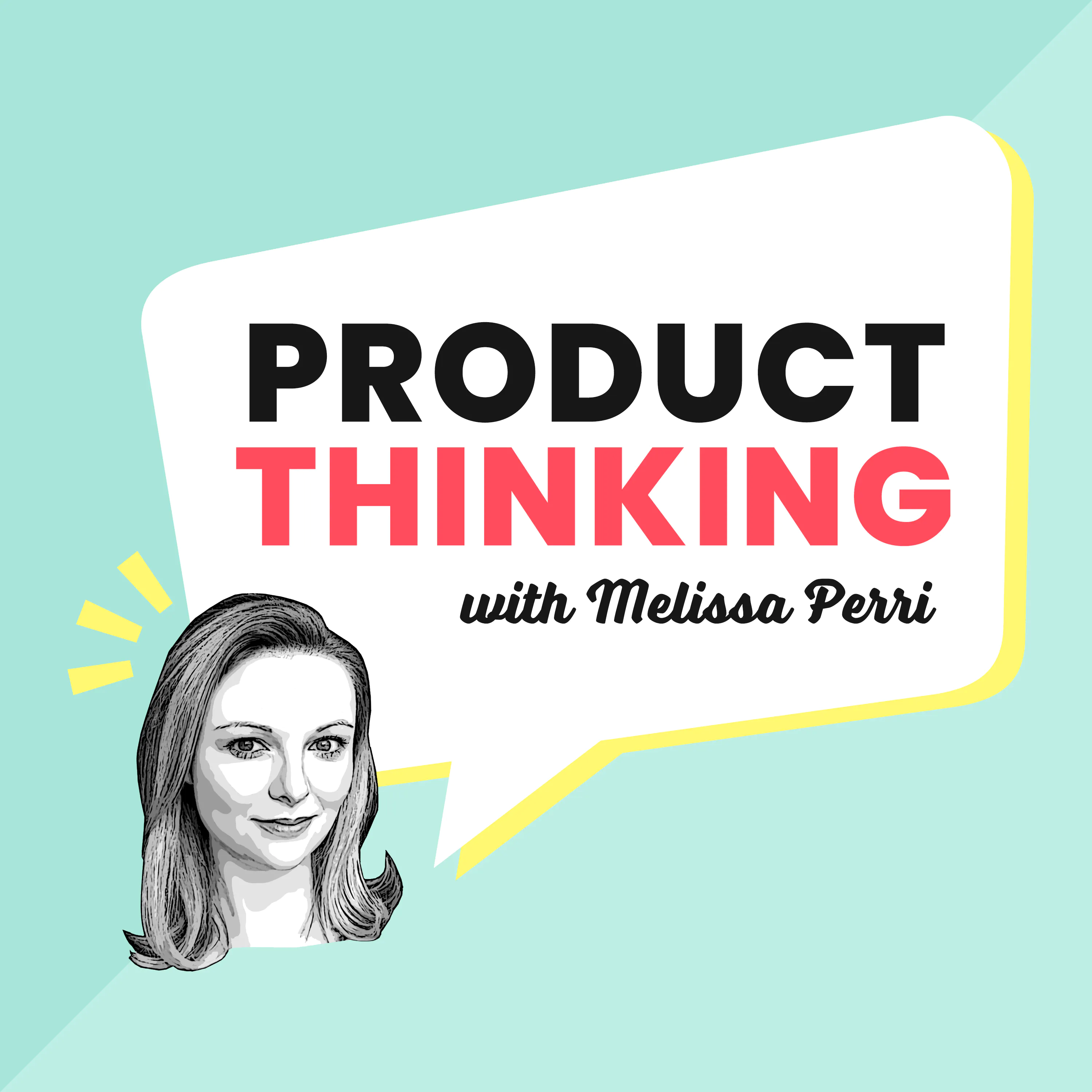Episode 201: Enhancing Product Operations in Enterprise Software with Mark Rosenberg and Vivian Phinney
December 11, 2024

Mark Rosenberg and Vivian Phinney from Workday join Melissa Perri on this episode of the Product Thinking podcast to dive into product operations. Mark, an experienced leader at Workday, shares his journey in implementing modern product operations within a large-scale organization to meet the financial product needs of over 2,000 customers. Vivian expands on how they accomplish it and her mission to reduce the cognitive load on product teams through selective standardization and streamlined data solutions—ensuring PMs can prioritize effectively and communicate clearly with leadership. Tune in to learn how Mark and Vivian tackle the challenges of growth and complexity in enterprise product development.
Mark Rosenberg and Vivian Phinney from Workday join Melissa Perri on this episode of the Product Thinking podcast to dive into product operations. Mark, an experienced leader at Workday, shares his journey in implementing modern product operations within a large-scale organization to meet the financial product needs of over 2,000 customers. He explains how he revamped product ops by establishing transparent prioritization, a well-defined team structure, and a shift toward continuous delivery to streamline complex enterprise products.
Alongside him, Vivian, Sr. Product Manager of Product Operations for the Financials product line at Workday, with a strong background in data science and DevOps, discusses her transition into product operations and her mission to enhance data-driven visibility for leadership. Together, they reveal some of the frameworks that influence their approach, including Playing to Win and the TSIA’s service model, which help unify cross-functional teams around strategic goals.
Tune in to learn how Mark and Vivian tackle the challenges of growth and complexity in enterprise product development, and discover insights on creating streamlined processes that empower teams to deliver impactful, customer-centered solutions.
You’ll hear us talk about:
- 07:13 - Building Transparency Through Structured Prioritization and Role Definition
In the discussion about optimizing transparency in prioritization, Mark outlines a new system of scoring projects across the portfolio, helping teams align on Workday’s most crucial goals while preserving team autonomy. He mentions how Vivian played a crucial role in refining roles and responsibilities within the product teams, from inbound and outbound product management to machine learning integration. This included a focus on continuous delivery, allowing code releases to reach testing environments more frequently for immediate feedback. Mark emphasizes that by refining product organization roles, Workday can better anticipate complex needs and scale effectively, building incremental progress that reassures leadership of their alignment with customer needs and business goals.
- 28:57 - Bridging Central and Division-Specific Product Ops
Mark and Vivian describe here the symbiotic relationship between central PMO governance and division-specific operational autonomy. Mark highlights the need for central standards for broader policies, release management, and compliance, but underscores the importance of giving divisions the flexibility to adapt these processes to their unique needs. Vivian adds that her product ops role involves customizing central policies for her division and regularly communicating back to central PMO about any proposed changes or potential concerns from her team. This two-way communication enables central PMO to make informed decisions, allowing product ops to tailor centralized frameworks to fit division-specific workflows and protect PMs' time, all while maintaining compliance and reducing risk.
- 41:45 - Rapid Prototyping for PMs
Vivian shares her journey from data science to product operations, explaining how her background in data science equips her with the skills to prototype solutions swiftly for PMs. With a strong grasp of pattern recognition and systems analysis, she can create quick, mock solutions utilizing tools such as Tableau or Jupyter notebooks, providing PMs with tangible tools to assess and refine before any major investment in a scaled solution. Her ability to test ideas with data and iterate based on PM feedback allows her to address their pain points practically and quickly. This agility, she notes, has proven invaluable in supporting PMs directly while keeping internal and central stakeholders aligned.
Episode Resources:
If you enjoyed this episode, please visit:
Previous guests include: Shruti Patel of US Bank, Steve Wilson of Contrast Security, Bethany Lyons of KAWA Analytics, Tanya Johnson Chief Product Officer at Auror, Tom Eisenmann of Harvard Business School, Stephanie Leue of Doodle, Jason Fried of 37signals, Hubert Palan of Productboard, Blake Samic of Stripe and Uber, Quincy Hunte of Amazon Web Services
Check out our Top 3 episodes:
Check out our Top 3 episodes:
- Episode 177: The Evolution of User Research: A Conversation with Steve Portigal, Author of Interviewing Users
- Tackling Product Research with C. Todd Lombardo
- Episode 128: Scaling Product Operations with Blake Samic, Former Global Head of Product Operations at Stripe and Uber
Product Thinking is handcrafted by our friends over at: fame.so
Product Thinking Guest and Audience Podcast Feedback Form
Product Thinking Guest and Audience Podcast Feedback Form